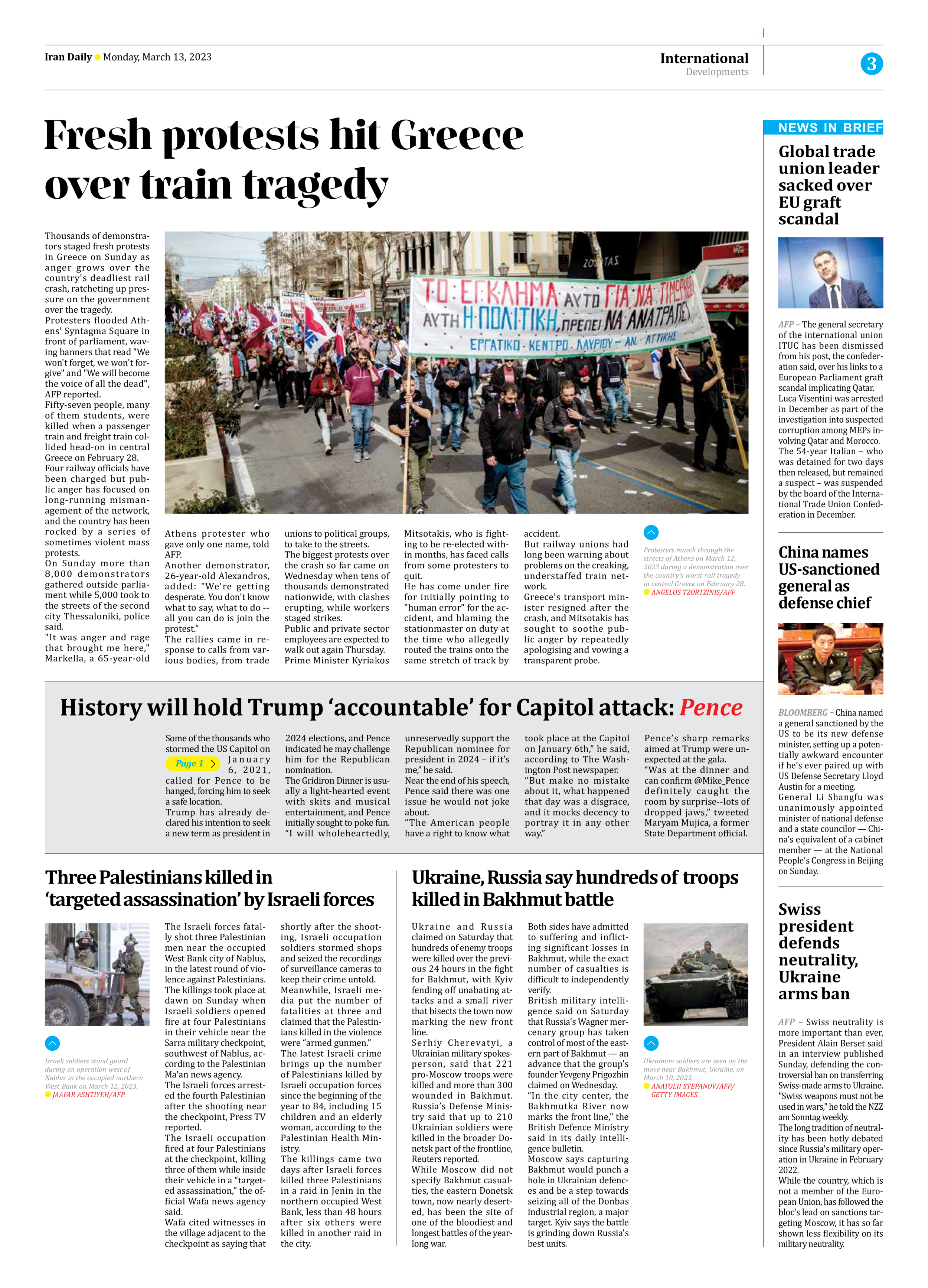
Fresh protests hit Greece over train tragedy
Thousands of demonstrators staged fresh protests in Greece on Sunday as anger grows over the country's deadliest rail crash, ratcheting up pressure on the government over the tragedy.
Protesters flooded Athens' Syntagma Square in front of parliament, waving banners that read "We won't forget, we won't forgive" and "We will become the voice of all the dead", AFP reported.
Fifty-seven people, many of them students, were killed when a passenger train and freight train collided head-on in central Greece on February 28.
Four railway officials have been charged but public anger has focused on long-running mismanagement of the network, and the country has been rocked by a series of sometimes violent mass protests.
On Sunday more than 8,000 demonstrators gathered outside parliament while 5,000 took to the streets of the second city Thessaloniki, police said.
"It was anger and rage that brought me here," Markella, a 65-year-old Athens protester who gave only one name, told AFP.
Another demonstrator, 26-year-old Alexandros, added: "We're getting desperate. You don't know what to say, what to do -- all you can do is join the protest."
The rallies came in response to calls from various bodies, from trade unions to political groups, to take to the streets.
The biggest protests over the crash so far came on Wednesday when tens of thousands demonstrated nationwide, with clashes erupting, while workers staged strikes.
Public and private sector employees are expected to walk out again Thursday.
Prime Minister Kyriakos Mitsotakis, who is fighting to be re-elected within months, has faced calls from some protesters to quit.
He has come under fire for initially pointing to "human error" for the accident, and blaming the stationmaster on duty at the time who allegedly routed the trains onto the same stretch of track by accident.
But railway unions had long been warning about problems on the creaking, understaffed train network.
Greece's transport minister resigned after the crash, and Mitsotakis has sought to soothe public anger by repeatedly apologising and vowing a transparent probe.







